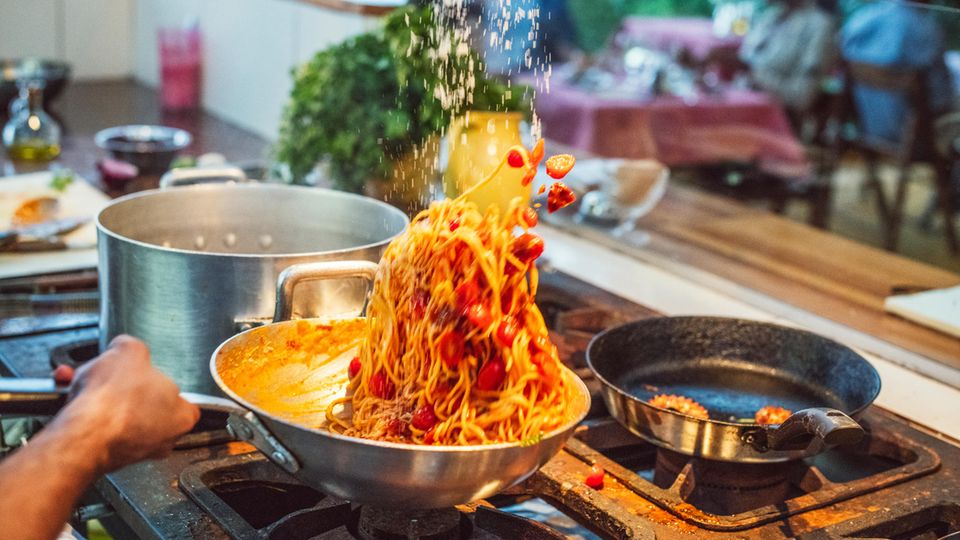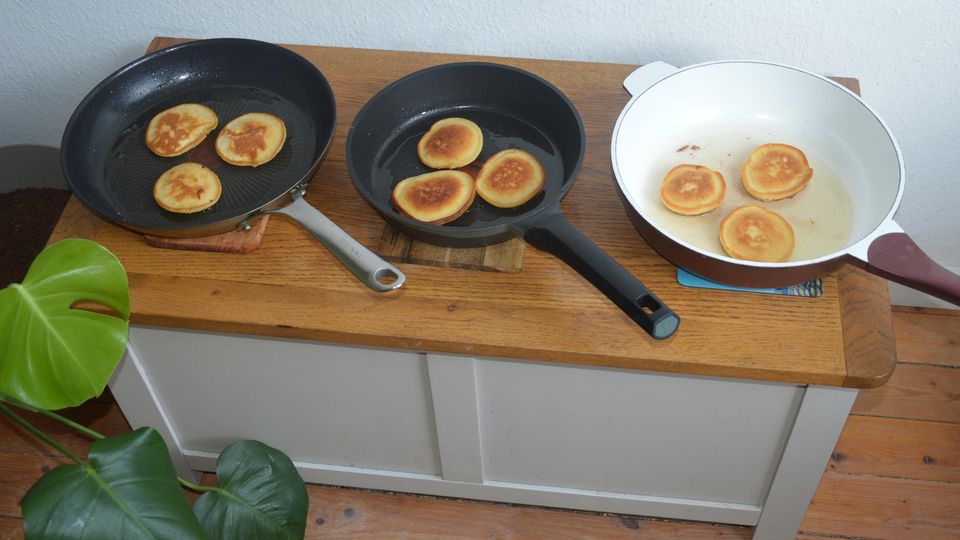longevity
The art of seasoning: preparing cast iron pans correctly
The cast iron pan only becomes durable with optimal care
© Getty Images
Cast iron pans are real treasures in the kitchen. Their excellent heat retention and distribution make them favorites of many cooking lovers. But to get the best out of it, you have to season it. We explain how this works.
Once you’ve seasoned a cast iron pan properly, you won’t be able to get rid of it. They are real treasures in the kitchen, although they require quite a bit of maintenance. Properly seasoned, the pan improves its non-stick properties and can become a lifelong companion on the stove.
Step 1: Choose the right pan
Before you begin seasoning, make sure your cast iron pan is clean and rust-free. If you purchased a used pan or your pan already has rust spots, remove the rust thoroughly with a steel brush or wool.
Step 2: Preparing the pan
Wash the pan with warm water and a mild dish soap to remove any surface residue or dirt. Then dry the pan completely.
Step 3: Oil the pan
Oiling is the key to seasoning a cast iron pan. Apply a very thin layer of vegetable oil (e.g. rapeseed oil or sunflower oil) to the entire inner surface of the pan, i.e. the bottom and the sides. Be careful not to use too much oil – excess oil can cause the pan to become sticky.
Step 4: Burn in
Place the oiled pan on the stove and slowly heat to medium heat. Leave the pan on the stove for about 10-15 minutes to allow the oil to absorb into the surface. During this time the oil will begin to smoke and the pan will darken. This is a good sign and means the burn-in process is working.
Step 5: Cool and Repeat
Remove the pan from the heat and allow it to cool completely. Once cool, repeat steps 3 to 5 at least two to three times to develop a stable patina.
Step 6: Caring for the pan
After you have successfully seasoned your cast iron pan, care is crucial. Avoid using soap as it can affect the patina. Instead, clean the pan with hot water and a brush or sponge after each use. Dry the pan immediately and rub it lightly with oil to protect it from rust.
Over time, your pan will get better and better. It develops a natural non-stick coating. Some pans can last for generations if treated well.




